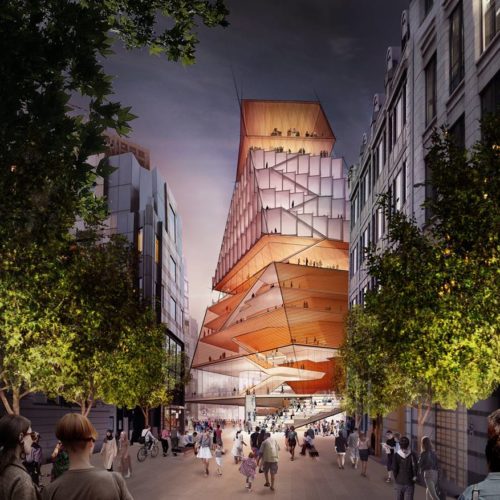No words needed.
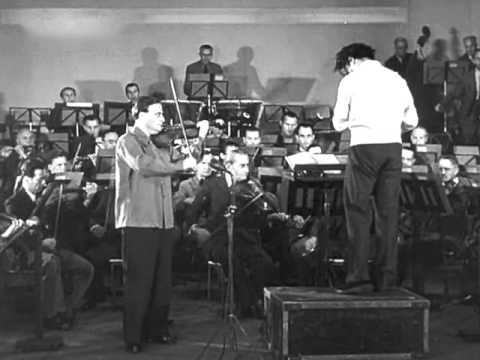
No words needed.

From the Lebrecht Album of the Week:
At first hearing, these three violin concertos dated 1790 sound like Haydn. The second of them could even be Mozart if we didn’t know that Mozart only wrote five concertos and these are numbered 13 to 15. So who was Giornovich if he could write so well, and why have we never heard this music before, given that this is a world premiere recording? Giornovich was, if nothing else, well-connected….
Read on here.

From our diarist Anthea Kreston:
These days of heavy touring create an instability – in diet, sleep, emotions, and family life. As I have always done these past years, I nip back home between concerts, if possible, if only for a chance to help with homework, eat dinner, and have a beer with Jason before heading out again before the next morning’s breakfast rush. It makes the difference (which feels as large as a chasm) between saying “see you in a week” and “see you Thursday after school!”
Recently, I was home on a weekend, and was fortunate to line up with a chance to see Jason in action, in a concert including the Mendelssohn octet. His partners were a mix of members from the elite of Berlin’s orchestras, and their spouses and friends, who had, at some point along the way, realized that perhaps a more normal career (medicine, business) might suit better. The venue was intriguing- the newly opened Qatar Culture House, which was having the grand opening of an art exhibit featuring the Macedonian-born (and Berlin trained) Pleinair painter Ben Kamili.
The girls, decked out in their chosen finery (beaded clutches, dresses, shawls and army boots) and I passed through the imposing wrought iron gates; the Culture House was resplendent in its opulence. At one time the largest single residency in Berlin, it had passed through many hands (hotel, youth center, private residence) over 120 years before lying dormant and falling into seemingly irreversible disrepair before being purchased (with much controversy) by the Qatar government. It is nestled in a posh, historic residential neighborhood in Zehlendorf, the South-Western subsection of Berlin which houses many embassies, and includes a large American presence – the Allied Museum and the JFK School (where our children attend). It’s where you go if you want to find peanut butter and salsa.
Our coats were checked, and we were ushered to a plush, stuffed pearl-colored divan, in the second row (close enough to be able to see the notes on the music stands). The audience was stretched on three sides of the stage, in the sun-room, dining room, and sitting room – all French doors opened wide to the octet of chairs. A wooden speaking podium and small jungle of tripods hinted at the likelihood of a bit pomp and circumstance. As the audience continued to swell, the security team began to scramble for more seating – bringing chairs from above and below, and eventually, even the garden chairs were fetched. This was a standing-room-only crowd – people of all color and dress even crowding onto the spiral staircase.
As the tantalizing smells of the post-concert comestibles wafted through the rooms, the speeches began – both the German and Qatar diplomatic circles were well-represented, and the painter introduced his works as well, explaining that his particular style which incorporates a very heavy hand with the oil paints, creating not only a three-dimensional aspect, but also a weight problem – the paintings having to be carried by many burley men and mounted on large furniture-like structures.
Eventually the musical portion of the concert began, my seven-year-old using her opera glasses throughout, not always trained on the performers. It was lively, and the audience responded enthusiastically after each movement, cameras flashing and tripods manned.
The reception was delightful – our daughters particularly taken by the elderly man, wearing a long white flowing thobe, balancing on one arm (his hand wrapped in an old stained bandage) an impossibly high stack of miniature tea cups emblazoned with the Qatar seal, while in the other hand, an ornate silver teapot, from which he would magically pour, from a dangerous distance (hence the bandaged hand?) a steaming stream of tea into your little cup.
A thorough investigation of the premises by our daughters revealed not one, but two fully-outfitted professional kitchens, rows of locked doors, and a newly dugout half-basement with multiple suites, partially completed. It was a fun and spicy way to spend the afternoon, and a perfect way for me to regain my family balance, if only for a day.
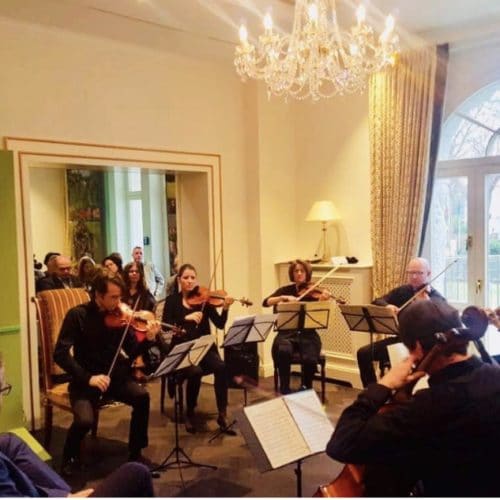
The Berlin music director, battered by recent reports of bad temper, has decided to launch the next season of the Berlin State Opera online only, without facing the media.
The plans for 2019/20 will be published on the company’s website from 11 am on March 25.
This appears to be unprecedented for a state opera house.
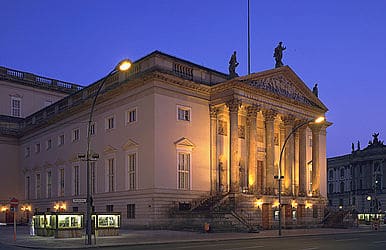
Counting all available fingers and toes, the Vienna Opera reckons its coming performance of Richard Strauss’s masterpiece on March 21 will be the 1,000th in its history.
Adrianne Pieczonka will sing the Marschallin, Peter Rose is Ochs, Stephanie Houtzeel plays Octavian, Chen Reiss is Sophie and Markus Eiche Faninal. Adam Fischer conducts.
The opera’s Austrian premiere was given by the company on April 8, 1911 with Marie Gutheil-Schoder as Octavian and Richard Mayr as Baron Ochs. Ernst von Schuch conducted.
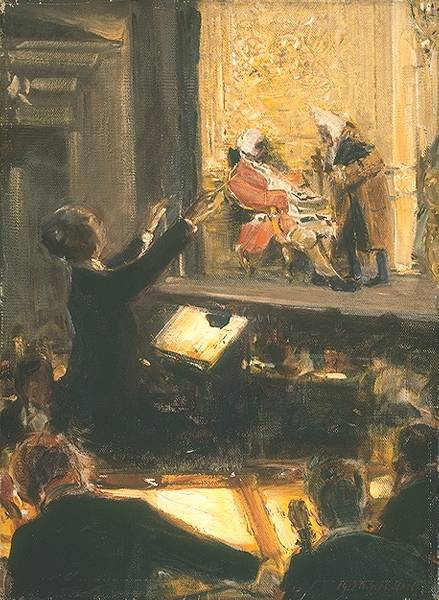
Emilia Moskvitina got a telegram from the Kremlin yesterday:
‘You are rightly considered a bright, creative, enthusiastic person, an outstanding representative of the national school of harp playing. And of course, I especially note your multifaceted educational activities, tireless care for the upbringing of young talented performers, the continuation of the wonderful traditions of Russian musical art.’
Emilia has been principal harp of the Moscow State Philharmonic Symphony Orchestra since 1963 and of the Bolshoi since 1987.
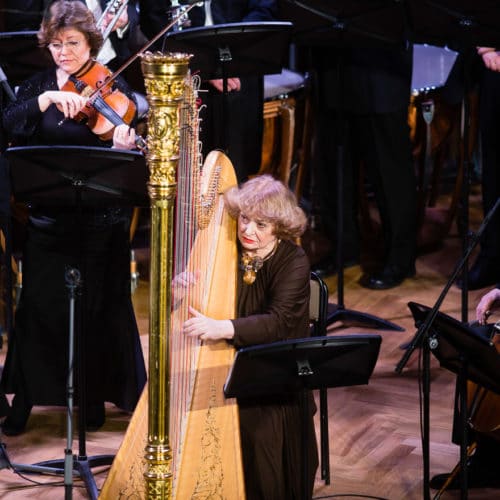
She’s one of the world’s longest-serving orchestral players.
Phineas Harper, chief curator of the Oslo Triennale, has written a powerful blast against Sir Simon’s Rattle’s demand for a half-billion concert hall just a few hundred yards away from the present facility.
He says: ‘To build a concert hall, on the steps of another in order to gain adjustments in resonance so slight that they are imperceptible to the vast majority of ordinary people is beyond fussiness – it is perverse.’
And: How have our urban priorities become so warped that fire stations, court houses, hospitals, women’s refuges and community centres close down every week, while classical conductors can demand new orchestral venues be built neighbouring existing ones on such marginal aesthetic grounds?
Read on here.
